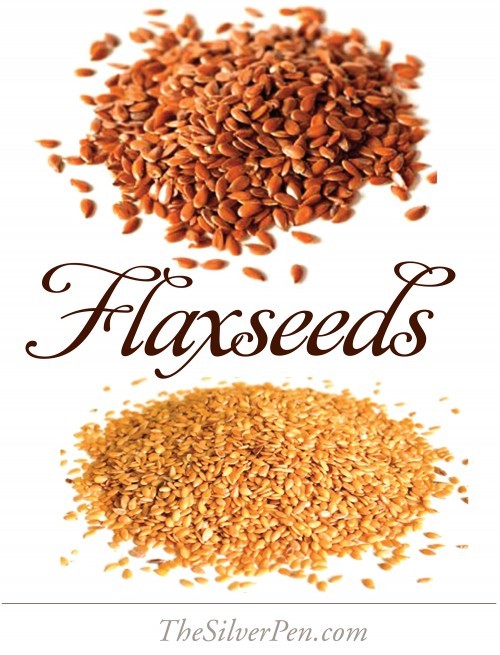Flaxseed oil and seeds (also known as linseed) have both been promoted as valuable substances for preventing cancer, but when I was in the middle of treatment, I wondered whether it was safe to consume? Here’s the thing: it is always important to double and triple check with your oncologist and/or dietician what you can take (or not take!) during treatment because any food or supplement can potentially negatively interact with medications. And why on earth would you want to potentially undo the hard work of your treatments?!? Just saying…
The Silver Lining is that experts seem to consistently agree that is is both safe and effective during cancer treatment (and my doctor and dietician corroborated). I’m such a huge fan & eat it every day.
There are many great reasons for consuming Flaxseed.
- It is one of the best sources of Omega-3 fatty acids, which may not only protect against the development of cancer but may also shrink tumors and prevent the muscle loss that commonly occurs during cancer treatment. The Omega-3’s are also – as I’m sure you already know – super duper for lowering cholesterol.
- It is a good source of lignans, which is a Silver Lining for people who have ER+ (estrogen positive, like moi) FBC (my loving reference to f-bomb breast cancer, for new readers). According to Breastcancer.org, flaxseed is a good source of lignans — compounds that may have a weak estrogen effect. When a weak estrogen-like substance takes the place of your body’s natural strong estrogen in a breast cell’s estrogen receptor, then the weak substance can act as a relative anti-estrogen. By acting in this way, lignans might help work against breast cancer that depends on estrogen for its growth. The lignans are concentrated in the hull of the flaxseed. If the seeds are ground up, your body has an easier time getting to the lignans.
- It is high in both soluble and insoluble fiber, which is always a Silver Lining for bowel health.
- It can help with hot flashes – for some people. One study of menopausal women, published in 2007, reported that 2 tablespoons of ground flaxseed mixed into cereal, juice, or yogurt twice a day cut their hot flashes in half. Yep. The intensity of their hot flashes also dropped by 57%. The women in this study noticed a difference after taking the daily flaxseed for just one week and achieved the maximum benefit within two weeks. Sorry to say that this wasn’t the case for me, BUT as you may recall, I was the side-effect queen and a total anomaly.
Though the U.S. Department of Agriculture makes no recommendation about the amount of flaxseed that a person should consume each day, many dietitians advise eating 1 or 2 tablespoons of ground flaxseed meal daily. By the way, though the jury is still out and more research needs to be done, it is generally believed that flax meal seems to be more effective than oil.
In terms of preparation and storage:
- Grind it! I buy mine ground but you can grind it yourself. The reason for consuming it in a ground form is because flaxseed, when eaten whole, is more likely to pass through the intestinal tract undigested, which means your body doesn’t get all the healthful components. If you want to grind flaxseed yourself, those little electric coffee grinders seem to work best.
- Keep all flax products refrigerated or in vacuum-sealed containers…in the freezer.
- FYI, Milled = ground = flax meal. Milled or ground flaxseed is the same thing as flax meal.
- Buy either brown or golden flaxseed. There is very little difference nutritionally between the two, so the choice is up to you.
- I put flaxseed in smoothies, on salads, in soups, or on oatmeal. It has a nutty flavor that I have come to enjoy immensely.
Do you take flaxseed? If so, what do you think about it?



Thank you for the information Hollye. My Oncologist was adamantly opposed to eating/taking flax in any form, though I put it in everything possible before FBC (ER+). I'll keep investigating and see what she has to say at my next visit.
Very interesting, Anne. Look forward to hearing all about your conversation. Take good care!
I take it daily when I can 2T on cereal, or yoghurt. I like it . Never knew all the benefits.
Great, Trish! Thanks for writing.
I sprinkle about a teaspoon and a half on my bowl of fruit each day.
Fabulous, Cynthia! Thanks for sharing!
Love this topic. As a breast oncology Physician Assistant for the last 15 years I have gone back and forth on the idea of my patients using Flaxseed; mainly because the clinical information that comes out about "plant estrogens" goes back and forth. I have settled finally on being totally alright with my patients using Flaxseed, Soy and other plant based estrogens (Phytoestrogens), whether they are ER (estrogen receptor)+ or not. Mainly for the exact reasons you have described and evidence based to that fact. I could get all clinical here, but your site is not the place to do that. But many, many epidemiology studies have shown the protective effect of plant based estrogen and breast, prostate, ovarian and uterine cancers. Having said this, if you are a breast cancer patient/survivor please speak with your Oncologist about their take on the issue. They are your caretaker in this regard. Thanks Hollye for your wonderful website!
Thank you so much for your valuable input, Donna. I really appreciate it….and feel free to get all clinical here. Anytime!